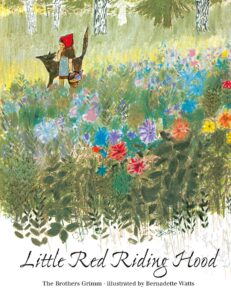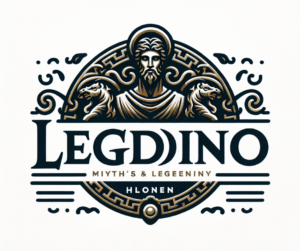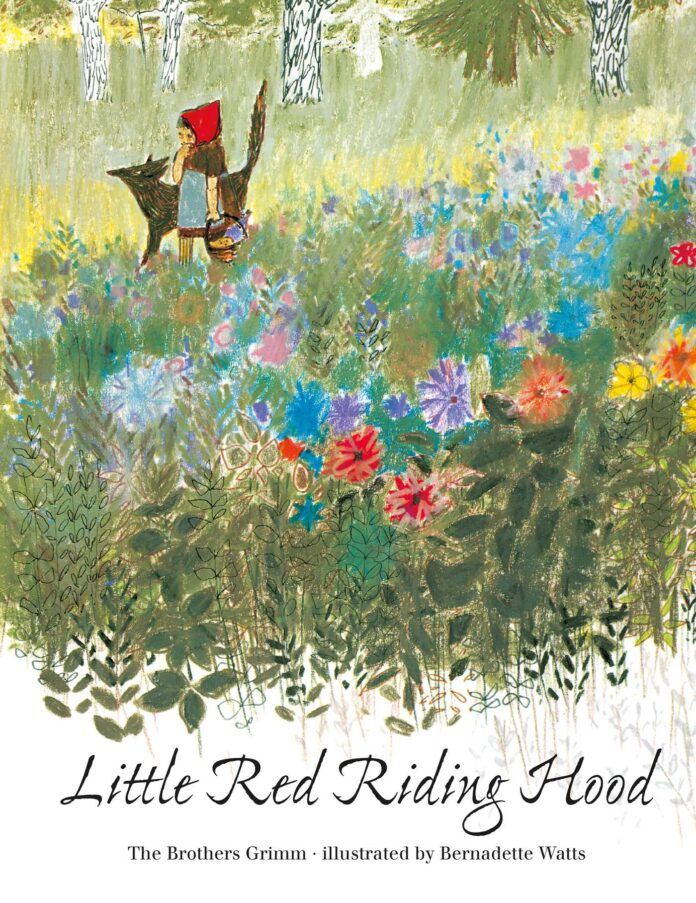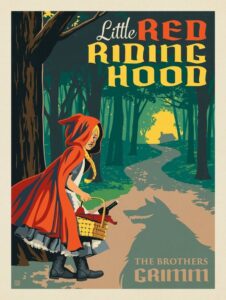The tale of Little Red Riding Hood, originally recorded by the Brothers Grimm, has been told and retold for centuries. Its enduring legacy is a testament to its deep moral lessons and captivating narrative, which continue to resonate with audiences of all ages. In this article, we explore the timeless themes and lessons that make Little Red Riding Hood a classic story, while also providing insights into its historical context and modern interpretations.
A Brief History of Little Red Riding Hood
The story of Little Red Riding Hood has its roots in European folklore, with versions of the tale dating back to the 10th century. However, it was the Brothers Grimm who popularized the story in the 19th century, embedding it into the cultural consciousness. Their version, “Rotkäppchen,” captured the imaginations of readers and established the framework for the tale as we know it today.
The Core Storyline
Little Red Riding Hood follows the journey of a young girl sent by her mother to visit her sick grandmother. She wears a distinctive red cloak, a gift from her grandmother. On her way, she encounters a cunning wolf who learns of her destination and devises a plan to eat both the girl and her grandmother. Despite warnings to stay on the path and not talk to strangers, Little Red Riding Hood strays, leading to a dramatic and moral-filled conclusion.
Key Themes and Lessons
1. Stranger Danger
One of the most prominent lessons in Little Red Riding Hood is the danger of talking to strangers. The wolf’s deceitful nature and his ability to disguise himself highlight the potential risks of naivety and trust in unfamiliar individuals. This lesson remains relevant today, particularly in discussions about children’s safety.
2. Obedience and Consequences
Little Red Riding Hood’s disobedience to her mother’s instructions serves as a cautionary tale. Her choice to stray from the path and engage with the wolf brings about dire consequences. This theme underscores the importance of listening to parental guidance and understanding that actions have consequences.
3. Courage and Resourcefulness
In many versions of the story, Little Red Riding Hood demonstrates bravery and quick thinking, ultimately contributing to her own rescue. This theme encourages readers to be courageous and resourceful in the face of danger, reinforcing the idea that individuals have the power to influence their own outcomes.
4. The Battle Between Good and Evil
The confrontation between Little Red Riding Hood and the wolf represents the classic struggle between good and evil. The wolf’s eventual defeat serves as a reminder that good can triumph over malevolent forces, a reassuring message that resonates across cultures and generations.
Modern Interpretations
The tale of Little Red Riding Hood has been adapted in countless ways, from children’s books to movies and even psychological studies. Modern adaptations often explore deeper psychological and social themes, reflecting contemporary issues while maintaining the core elements of the original story.
1. Psychological Analysis
Psychologists have examined Little Red Riding Hood through various lenses, interpreting the characters and events as representations of subconscious fears and desires. For example, the wolf can be seen as a symbol of predatory male sexuality, and Little Red Riding Hood’s journey as a metaphor for maturation and the loss of innocence.
2. Feminist Perspectives
Feminist scholars have also revisited the story, critiquing traditional gender roles and highlighting Little Red Riding Hood’s transformation from a passive victim to an active heroine. These interpretations offer new insights and empower readers to view the story through a modern, egalitarian perspective.
3. Cultural Adaptations
Different cultures have put their own spin on the tale, infusing it with unique elements and moral lessons. These adaptations showcase the story’s universal appeal and its ability to transcend cultural boundaries while retaining its fundamental message.
The Importance of Storytelling
Little Red Riding Hood’s enduring popularity underscores the power of storytelling. Tales like this one not only entertain but also educate and instill values. They serve as a cultural bridge, connecting generations and fostering a shared understanding of important life lessons.
Conclusion
The enduring legacy of Little Red Riding Hood is a testament to the story’s timeless appeal and its profound moral lessons. From teaching the importance of caution and obedience to celebrating courage and the triumph of good over evil, the tale continues to captivate and educate. As we retell and reinterpret this classic story, we ensure that its valuable lessons endure, guiding and inspiring future generations.



















